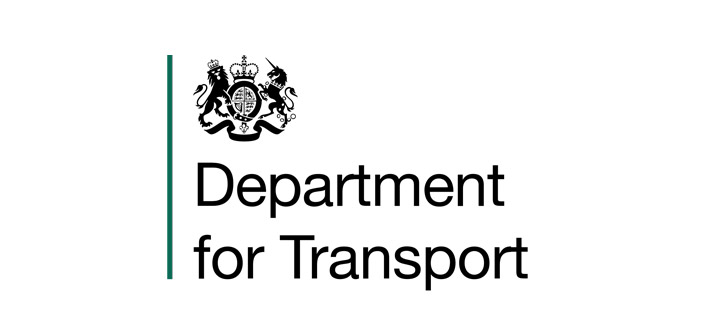Disabled passengers set for more accessible journeys at sea
Journeys by sea for thousands of disabled passengers are to be improved thanks to the Government issuing new guidance on improving accessibility to operators.

|
| Journeys by sea for thousands of disabled passengers are to be improved thanks to the Government issuing new guidance on improving accessibility to operators.
Maritime Minister Nusrat Ghani announced the publication of the Passenger Rights toolkit during a visit to Liverpool today (Wednesday, January 22) where she met key stakeholders including Mersey Maritime, Wirral Waters and Port of Liverpool. The toolkit provides operators in England and Wales with a high-level guide on what they must do to comply with passenger rights regulations, as well as recommendations on how maritime transport can be made more accessible. It will apply to services such as ferries operating from Liverpool and makes recommendations on how maritime transport can be made more accessible to make journeys better for disabled passengers and staff.
The toolkit covers the whole journey experience, from accessing information at the booking stage through to arriving at the final destination. It highlights the challenges disabled people can face in travelling by sea, whether their disabilities are visible or hidden. Maritime transport already benefits from comprehensive passenger rights regulation and this is enforced by the Maritime and Coastguard Agency (MCA). The toolkit provides guidance to support the regulations and will help industry to comply with them. The Maritime and Coastguard Agency (MCA) conduct inspections on operators and ports to ensure compliance with passenger rights regulations and they can be prosecuted in the courts and fined if they don’t comply.
At the end of 2018, the MCA carried out its first survey of disabled passengers’ experience when travelling by sea and the results were used to inform the recommendations made in this toolkit. The department worked closely with the Disabled Persons Transport Advisory Committee (DPTAC) and industry representatives including the UK Chamber of Shipping and British Ports Association in its development. The development of the toolkit was a commitment in the Inclusive Transport Strategy, which was published in July 2018. It sets out the Government’s ambition for disabled people to have the same access to transport. It’s everyone’s journey It’s everyone’s journey is a communications campaign developed by the Department for Transport in association with disability, transport and charity partners. The campaign aims to improve the public transport experience for disabled people by creating a more considerate and supportive travel environment. If you’re interested in learning more about ‘it’s everyone’s journey’ or becoming a campaign partner, visit gov.uk/everyonesjourney follow @IEJGov or email everyonesjourney@dft.gov.uk.
Driving Mobility is the National Voice for assisted driving and independenceDriving Mobility accredits a network of 20 driving assessment centres covering the whole of the UK. Many with outreach facilities, these centres include independent charities and NHS centres which offer professional information and assessment so disabled and elderly people can gain or retain independence. |
Driving Mobility launches pilot ‘Hubs’ scheme to support elderly and differently abled persons in improving their community and outdoor mobility.
“This new provision of advice and information delivers multiple benefits for the public, communities, local authorities and the health service.”

Supported by the Department for Transport, Driving Mobility, the charity that accredits a nationwide network of driving assessment centres, has successfully introduced its new ‘Hubs’ pilot scheme to broaden information and guidance regarding accessible travel.
The launch of new services, across seven regional centres, is in response to HM Government’s ‘A connected society’ strategy which aims to tackle the growing issue of loneliness. Other Government initiatives such as The Department for Transport’s Inclusive Transport Strategy have also provided the catalyst to develop these new transportation information hubs. Complementing existing driving assessment services, these additional resources focus on reducing social isolation through more effective use of accessible transport and greater independent mobility. Each centre aims to deliver a ‘one stop shop’ approach to providing viable options for elderly and disabled non-drivers – ranging from information on accessible public and community transport through to mobility scooters and wheelchairs.
Edward Trewhella, Driving Mobility CEO comments: “The launch of the pilot Hubs scheme is a significant milestone for our charity and its service users. This new provision of advice and information delivers multiple benefits for the public, communities, local authorities and the health service.”
Nusrat Ghani, MP and Parliamentary Under-Secretary of State at the Department for Transport, said: “While many take for granted the ability to travel easily from A to B, access for the fifth of people who identify as disabled can be far from straightforward. We want disabled people to travel easily, confidently and without extra cost.”
Driving Mobility is regarded as the national voice of assisted driving and independence. This charity oversees twenty individual organisations which offer professional support and driving assessments to people who need to gain, or retain, the ability to drive following a diagnosis involving impairment or disability. Centres operate either as independent charities or within an NHS Trust. Across the UK seven of these centres now offer a more holistic approach to personal mobility information, assessment and advice.
Operating with Approved Driving Instructors, Occupational Therapists and professional transport advisors, the Hubs centres are:
- Cornwall Mobility Centre, Truro – South West
- East Anglian DriveAbility, Thetford – East Anglia
- Queen Elizabeth’s Foundation for Disabled People (QEF), Carshalton –
South London and Surrey - Wessex Driveability, Southampton – Berkshire, Wiltshire, Hampshire, Dorset and IoW
- South East DriveAbility, Maidstone – South East
- RDAC, Birmingham – Greater Manchester and East Yorkshire
- North East Drive Mobility, Newcastle-upon-Tyne – North East
Driving Mobility is also running a similar pilot project in North East London, seeking to establish what is needed in the way of support for encouraging more outdoor mobility and combatting loneliness and social exclusion through guidance as to accessible transport options.
Edward continues: “Social prescription is a key strategy to combat isolation and depression through pro-actively linking elderly and disabled people with their community, family and friends. With greater mobility, people are less likely to need care-related support as lifestyles can be more rewarding and well-being is improved. With easier access to our knowledge, both transport users and operators can reduce risk and accidents with an enhanced travel experience for all. This is hugely significant in relation to reducing monetary pressures on the NHS and social care.”
Each centre has introduced an individualised range of services with a common goal – to provide transport advice, all in one location, for those who no longer use a private car. For example, Wessex DriveAbility based in Southampton, has focused on a digital platform, namely Goingcarfree.com. This website is easy to navigate and has been designed with accessibility in mind. Other centres have different approaches however all have been trained to identify signs of loneliness and how to mitigate social exclusion.
In terms of practical specifics, Driving Mobility hub centres can provide details regarding local bus, train and taxi operators in terms of accessibility, support services, fare concessions and staff assistance. Advice on assisted air travel is a particular speciality at QEF Carshalton through its Tryb4uFly service and assessment in relation to appropriate mobility products is now commonplace. Help with accessible locations and attractions can also be obtained along with awareness of useful local groups, charities and organisations.
Edward concludes: “We have now built upon our core driving assessment services to offer a truly holistic approach so that personal mobility continues after a driving licence is revoked or use of private car becomes unviable. No longer is there a need to search with the potential for confusion or misinterpretation, Driving Mobility Hub centres deliver a singular, concise resource, for greater clarity and ultimately easier accessible travel.”
Image: Helen Dolphin MBE, Chair of a regional Driving Mobility centre and leading accessible travel expert, is a strong advocate of the Hubs pilot project.
£20m fund to benefit disabled rail passengers one year on from the Inclusive Transport Strategy
Disabled rail passengers across the UK are set to benefit from a raft of accessibility improvements with the opening of a £20m government fund today (Monday, 8 July 2019).

£20m fund marks one year on from the Inclusive Transport Strategy
- Industry invited to nominate train stations across Britain that would benefit from improvements to accessibility.
- Department marks one-year since the publication of the Inclusive Transport Strategy.
- Move follows wider developments to make the transport network more inclusive, such as the extension of the Blue Badge scheme.
Disabled rail passengers across the UK are set to benefit from a raft of accessibility improvements with the opening of a £20m government fund today (Monday, 8 July 2019).
The opening of the fund marks a year since the launch of the Inclusive Transport Strategy, the Government’s flagship accessibility programme.
Key commitments delivered in the last 12 months include the introduction of the first ever impartial independent Rail Ombudsman, to make sure passengers get a fair deal when train companies fall short, and the launch of a £2m fund to bring Changing Places accessible toilets to more motorway service areas.
And last month, guidance was issued to local authorities in England for extending the Blue Badge scheme – the biggest change in 50 years – making it easier for people with non-visible disabilities to travel.
Nusrat Ghani, Accessibility Minister, said:
“While many take for granted the ability to travel easily from A to B, access for the fifth of people who identify as disabled can be far from straightforward.
“We want disabled people to travel easily, confidently and without extra cost, which is why it is fantastic to be opening this fund today.
“I look forward to seeing what ideas the industry has for accessibility improvements as we work towards a more inclusive rail network.”
The £20m fund will be open for applications from stations in need of accessibility improvements, leading to small-scale enhancements such as tactile paving, handrails and Harrington Humps, which increase platform heights. Taken together, these improvements will open up journeys for disabled passengers, allowing them to travel with confidence.
John Welsman, guide dog owner and policy lead at Guide dogs for travel and mobility, said:
“Guide Dogs welcomes the additional funding as independent train travel is a real challenge for people living with sight loss.
“Elements like tactile paving on platform edges and steps, better signage, improved lighting and colour contrast, will make stations easier to negotiate confidently and more safely.
“However train travel is still a very complex environment for people with sight loss and we will continue to work to find solutions so that no one with sight loss is left out of life.”
This follows the announcement in April that 73 stations will benefit from accessible routes to and between every platform, as part of the Government’s £300m Access for All fund.
The Access for All programme was first launched in 2006 and has so far delivered more than 200 accessible routes into stations along with smaller scale improvements at a further 1,500 stations.
Previous projects funded through the programme include the installation of Harrington Humps at 77 stations to help reduce stepping distances from the platform to the train; accessible toilets installed at 18 stations – including a Changing Places toilet at London Paddington – and a new footbridge and four lifts installed at St Neots Station, Cambridgeshire.
The government is also proposing a number of measures to be delivered in partnership with industry to improve the flying experience for disabled passengers and those with reduced mobility as part of its Aviation 2050 Strategy.
The work is all part of the Government’s aspiration that by 2030 all major transport hubs and terminals on both public and private transport networks will meet the needs of disabled people, including toilet and changing facilities, straightforward signage, audio and visual messaging and space to navigate.
https://twitter.com/transportgovuk/status/1148123482867343360
